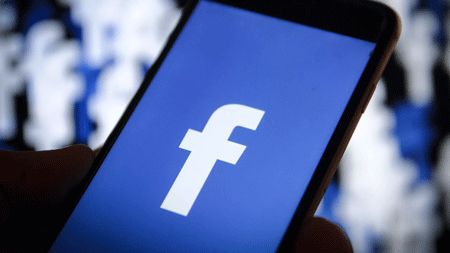Can Facebook survive?
Never has a company that has grown so big, so fast, been at such risk of vanishing so entirely. And its wounds are all self-inflicted. Center director Jeffrey Cole explains.
______________________________
By Jeffrey Cole
In Mark Zuckerberg’s worst nightmare, he never could have imagined anything as horrible as the November 24, 2018 issue of the Sunday New York Times that contained an op-ed piece with the large font headline, “Do You Have a Moral Duty to Leave Facebook?”
Internet historians will long ponder how it came to this.
 Of the four giant tech companies (Amazon, Apple, Facebook and Google), Facebook is by far the youngest, appearing five years after Google, the second youngest.
Of the four giant tech companies (Amazon, Apple, Facebook and Google), Facebook is by far the youngest, appearing five years after Google, the second youngest.
In these columns, I have examined how quickly these four companies appeared on the tech scene and asked, if they could emerge so fast, could they disappear equally fast? It became a parlor game to predict which would be the first to experience serious headwinds and face a potential decline as spectacular as its rise.
Now we have a good indicator as to which of the four may go down first.
Facebook is in the midst of an existential threat that is entirely of its own making.
A combination of naiveté, hubris, greed, paranoia, and mismanagement directly threatens one of the defining companies of the digital age. If it survives, it will be through the efforts, principles, and sheer determination of outsiders, not its current management.
Facebook is even bigger than it seems
Facebook began on the Harvard campus in 2004. For its first two years it was only available to Harvard students and then any students with an .edu email address. Only in 2006 did Facebook open to anyone 13 years or older — although that was a requirement they had little interest in enforcing. Why limit any potential user whose information could be collected and could be advertised to? Just go through the motions of pretending you were upholding the age requirement. From the beginning Facebook flouted its own rules.
_________________________________________________________________________________________________
Zuckerberg’s mantra as he was building Facebook was, “Move fast and break things. Unless you are breaking stuff, you are not moving fast enough.” It is now clear for the world to see that — at the end of all this fast movement — the thing that is broken is Facebook.
_________________________________________________________________________________________________
After 12 years of open availability, Facebook has 2.2 billion users. Some calculate this as 2/7ths of the world’s population, but that calculation is much too conservative. An entire 1.3 billion people, the Chinese, cannot get Facebook. Facebook reaches 2.2 of 5.7 billion people. But that figure underemphasizes Facebook’s power because the 5.7 billion number includes non-users of the Internet.
Our work calculates that there are 3.4 billion people who are a) connected to the Internet, b) not living in China, and c) could be on Facebook. Of that 3.4 billion, 2.2 billion are actually on Facebook, which is a lot more than 2/7ths.
There are only three ways for Internet users to acquire content: they can steal it (even those who do so acknowledge it’s not sustainable), pay subscription fees, or accept advertising (or a combination of the last two). Facebook made the early and important decision to go with advertising.
Looking at how many people are on Facebook (today), how much time they spend there, and its value to them, Facebook could have started at or moved to a $10 a month subscription fee: many of their users would have happily paid, but not everyone. Therefore, advertising was better.
The only way to get to 2.2. billion was through advertising. And Facebook is not giving up on the 4.8 billion they currently do not reach. Zuckerberg is working hard to get into China. He has traveled several times to try to break into the country and has even learned to speak Chinese (his wife is Chinese-American).
The company also wants non-users of the Internet to join its network. In late August of 2016, a SpaceX (one of Elon Musk’s companies) rocket blew up on the launch pad at Cape Canaveral. While the explosion embarrassed Musk, it infuriated Zuckerberg. Atop the rocket was a Facebook satellite intended to deliver Internet access–and therefore Facebook–to the developing world. It would take a couple of years to build a new rocket and satellite.
As Facebook witnessed explosive growth in the first decade of the century, so too did Apple, Amazon and Google. While it is entirely possible that the latter three companies have done things that will emerge and prove to be embarrassing, if not existential threats, so far none have come close to matching Facebook’s problems.
How Facebook’s problems compare
The four tech giants have divided up the digital world with surgical precision. In a recent column, The secret meeting that never happened, I explored how this division changed everything over the past decade.
Although Apple was established in 1976, the company that has become America’s first trillion-dollar corporation (the recent tech stock decline notwithstanding) actually began in 2003 when Steve Jobs introduced the iPod and iTunes (see Two guys in a garage for details). Apple is today the most recognized brand name on the planet (with the best- known logo), and while it is not a monopoly (there are more Android users than IOS users) it is an unparalleled success. It has its own problems, but it has never come close to losing the trust of its users.
_________________________________________________________________________________________________
Facebook is in the midst of an existential threat that is entirely of its own making. A combination of naiveté, hubris, greed, paranoia, and mismanagement directly threatens one of the defining companies of the digital age. If it survives, it will be through the efforts, principles and sheer determination of outsiders, not its current management.
_________________________________________________________________________________________________
Amazon has become America’s second trillion-dollar company. It has taken over the world (or a good chunk of it) and seems to want to put everyone out of business. It sells everything to everyone. While there are concerns about what it does with the information it collects, and whether it has become too big, Amazon provides superb customer service and maintains the trust of its customers.
Recently, during a trip to Amazon in Seattle, several of Amazon’s top executives told me that Jeff Bezos reads every piece of customer feedback sent to the company. He doesn’t answer — his team does that — but his team members know that he sees every comment and are ready for his reactions.
Google too has experienced unsurpassed growth. Although (until May of this year) it was committed to the principal “Don’t be evil,” it has made some serious missteps (just ask any publisher). Its users also worry about the data they generate by using Google search, YouTube, Google Maps, and Gmail… and where it all goes. Google has attracted the attentions of regulators, especially in Europe. But, like Apple and Amazon, Google has the trust of its users.
The same is not true of Facebook.
Is there a path forward?
Zuckerberg’s mantra as he was building Facebook was, “Move fast and break things. Unless you are breaking stuff, you are not moving fast enough.”
It is now clear for the world to see that — at the end of all this fast movement — the thing that is broken is Facebook.
Now the time is right to move slowly and fix things.
In my next column, I will describe in detail how Facebook got it so wrong so fast. Why its leadership failed, and why its users had little idea what they were part of. Never has such a big company been at risk of disappearing — after emerging from nothing to become one of the most important forces in the world in just 12 years.
Facebook is at a juncture that no company has been at before. Maybe its users do have a moral duty to leave the social network.
We’ll look at Facebook’s path to repair, reform, and redemption next time.
____________

Jeffrey Cole is the founder and director of The Center for the Digital Future at USC Annenberg.
To subscribe to these columns, send an email to [email protected].
See all columns from the Center.
November 28, 2018

